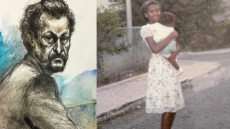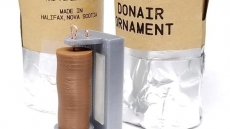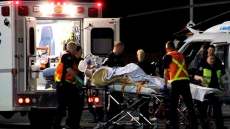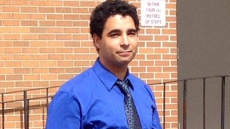OTTAWA — New Democrat MPs will meet face to face in Ottawa on Wednesday for the first time since the party went from the orange crush to the orange crushed.
Tom Mulcair, who has remained out of the public eye since the election, will meet his caucus on Parliament Hill on the same day Justin Trudeau takes the reins as prime minister and unveils his front bench.
In his Wednesday address to caucus, Mulcair is expected to point out the election results were not what the party hoped, but it accepts its mandate with its head high.
The leader will also take questions from reporters for the first time since the party was punted back to third-party status in the Commons.
The new caucus, made up of just 44 members, includes 16 rookies. The party held 95 seats at the dissolution of the last Parliament.
"I am looking forward to meeting with our caucus ... because a third of our caucus are new members of Parliament, so it will be the first time that those new members get to meet the returning members," NDP House Leader Peter Julian said.
"Even though we are disappointed in the results of the election, the reality is it is the second-largest caucus we've had in our history."
Julian also said the meeting will allow the NDP to map out how it can serve as an effective and progressive opposition in the Commons.
"I have no doubt with Tom's experience that we will be making a difference in the House of Commons again in this Parliament," Julian said.
Defeated NDP MPs say they were not invited to the caucus meeting, but were asked to a Thursday social gathering.
Peggy Nash, who lost her Toronto riding of Parkdale-High Park, says she strongly hopes there will be an opportunity for outgoing MPs to offer their thoughts on the election.
"When you meet with defeated MPs and their campaign teams, you hear a lot of grieving about what might have been and didn't happen, but I think that's an important, healthy process," Nash said. "We're certainly going to go through that locally ... but I think it is important that the party reach out and connect with people."

Julian said there will be a variety of ways for people to provide feedback on the campaign.
"It's just the beginning," Julian said. "As Tom has said, we're getting together a panel of folks ... to basically look through everything that happened during the election campaign and make recommendations so that we learn from it — both the good and the bad."
Mulcair has vowed to stay on as party leader for the long haul, though his fate is tied to a leadership review set for Edmonton in April.
As the NDP attempts to push forward, party officials maintain their fiscal situation remains strong after the prolonged campaign.
"We had an excellent fundraising operation both leading up to the campaign and during the campaign," said national party director Anne McGrath. "We are in very good shape in terms of our financial support."
Behind the scenes, the NDP has been going through the painful process of laying off about 300 people and shuffling staff into new roles.
"It is really difficult because they worked tirelessly, they gave it everything they had," said Paul Dewar, defeated in the riding of Ottawa Centre.
"Now some of them are out of work. So that's a difficult and a very emotional process because people have been working together for a very long time."
For the time being, Dewar will be the party's senior transition adviser to work with the party, the leader's office and the new caucus.
"What's very clear from everyone is that we do need to obviously retool but then let's get back to doing what we've always done well as a party and that is to get some things done, get some results," Dewar said.





